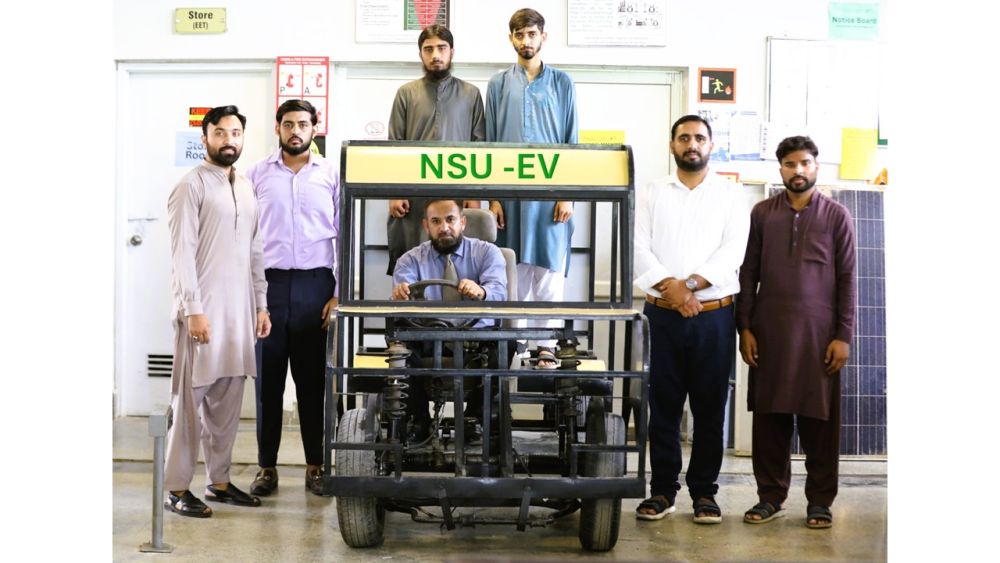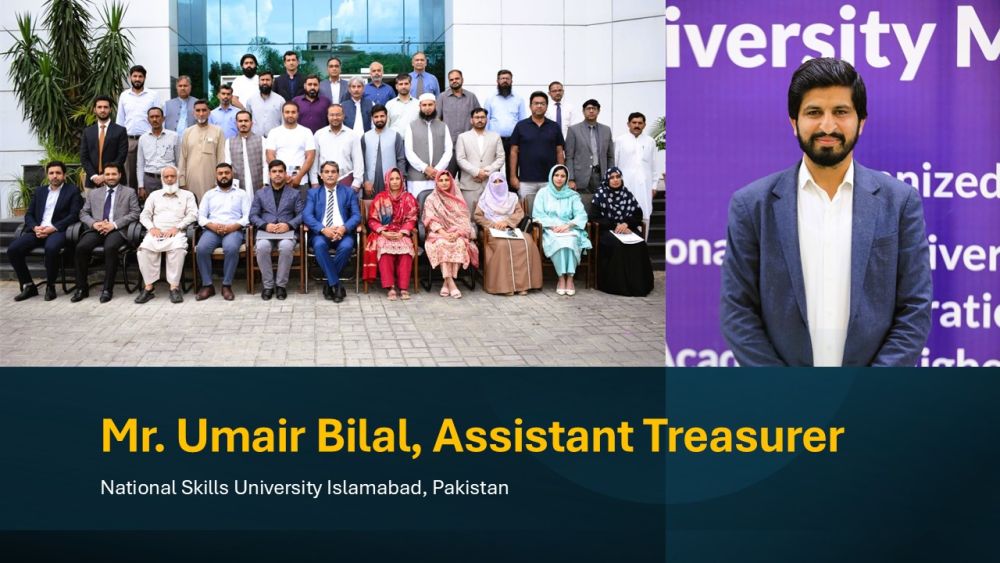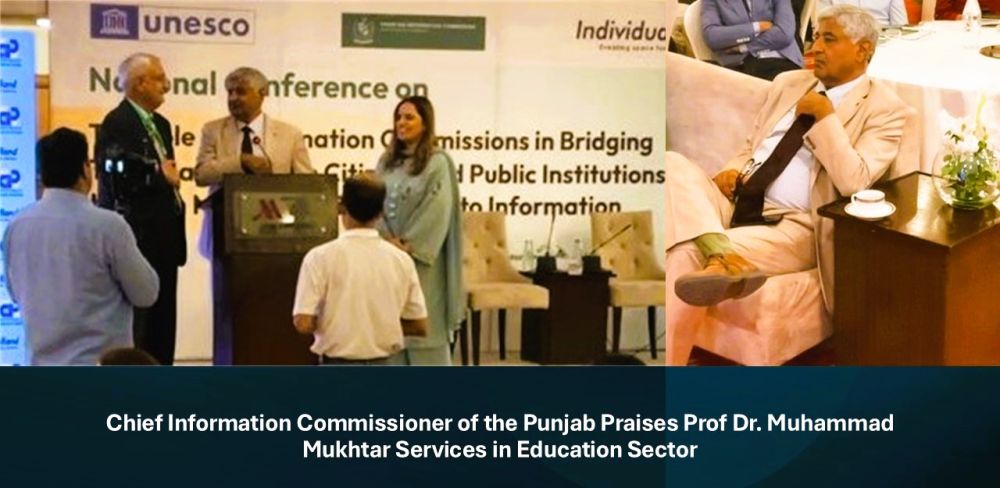139/25 National Skills University Islamabad: Forging Success Stories in Technology
Posted 7 months ago
Pakistan's National Skills University Islamabad (NSU) is quickly emerging as a hub of technological excellence and innovation. Among its many success stories, the university's Department of Electrical Engineering Technology has taken a significant step toward sustainable transportation and the future with its latest student-led achievement: the design and development of an electric vehicle (EV) specifically tailored for university use.
This vehicle, a hybrid of solar and electric charging technologies, is not just a prototype; it is a working solution intended to serve real-world needs within the NSU campus. With this achievement, NSU demonstrates that its educational philosophy, rooted in hands-on skills, sustainability, and innovation, is delivering tangible results.
A University Engineered for the Future
Established as Pakistan's premier institution focused exclusively on skills-based education, NSU is more than just a university; it's a launchpad for game changers. The Electric Vehicle project is emblematic of the university's mission: transforming knowledge into action and students into solutions.
Under the guidance of experienced faculty in the Department of Electrical Engineering Technology, a team of enthusiastic undergraduate students poured their hearts and minds into the EV project. Their journey, from coursework to research to creativity, culminated in a groundbreaking achievement. The project involved designing a lightweight, durable frame with aerodynamic efficiency, integrating a solar array capable of charging the battery for an average day's use, and developing a smart dashboard with energy consumption metrics. What sets this project apart is its dual-mode power system: solar panels embedded in the roof for daytime charging and conventional electric charging capability for backup and extended use.
"At NSU, we don't just teach about the future. We empower our students to shape it," declared Prof. Dr. Ishtiaq Ahamd, Chairperson of the department. "Our students don't just learn theoretical knowledge; they apply it in real-world situations. This EV reflects to their skills and our educational approach."
The EV: More Than Just a Vehicle
Designed specifically for intra-campus commuting and maintenance operations, the vehicle meets modern standards for efficiency, safety, and eco-friendliness. The solar-powered component addresses Pakistan's energy challenges head-on by harnessing the country's abundant sunlight. At the same time, the electric module ensures usability during non-sunny periods, providing a hybrid solution tailored to local conditions.
Key features include:
- A lightweight, durable frame with aerodynamic efficiency
- Solar array capable of charging the battery for an average day's use
- Smart dashboard with energy consumption metrics
- Modular design allows future tech upgrades such as IoT integration or AI navigation support
This innovation is not just an academic experiment; it's a pilot solution that could soon be adopted by other public institutions and urban environments across Pakistan, ushering in a new era of sustainable transportation.
Building Pakistan's Tech Future, Student by Student
In the broader context, this EV initiative is just one chapter in NSU's evolving story. NSU's strength lies in its model of applied education that blends cutting-edge technologies with national development goals. By fostering a culture where students learn by building, testing, and solving problems rather than just theorizing, the university is shaping a new generation of professionals equipped for Industry 4.0 and beyond.
This approach has earned NSU praise from both government and private sectors. It's now recognized not only as an academic institution but as a national incubator of tech-savvy, future-ready talent.
The Road Ahead
As sustainability becomes an unavoidable global imperative, NSU Islamabad presents a compelling case study on how localized, skills-driven education models can contribute to solutions of international relevance. In a country rich with untapped potential, National Skills University is showing what happens when that potential is paired with purpose; the results are electrifying.





